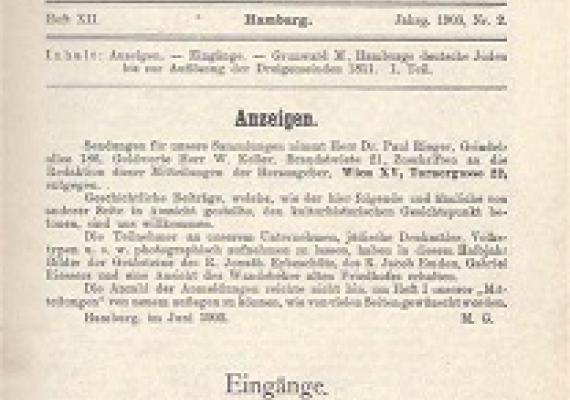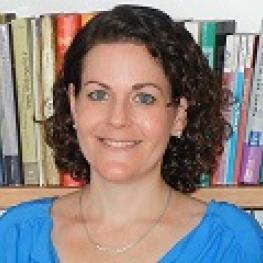Old Yiddish Literature and German Jewish Culture

The latest issue of JQR (107.2, Spring 2017) features an article by Aya Elyada on how early modern Yiddish found its way into the debate over the “Jewish question” in German scholarly discourse of the late nineteenth and early twentieth centuries. Here, Elyada reflects on the genesis of the piece. Read the full article here.
When we hear the term "German-Jewish literature" we usually think of modern Jewish literature in the German language, beginning with Moses Mendelssohn and flourishing throughout the nineteenth century and the first decades of the twentieth century. But before these better known times, an earlier corpus of literature existed, predating Mendelssohn and dominating the cultural world of German Jews throughout the early modern (post-Renaissance, pre-Enlightenment) period. This so-called Old Yiddish literature (as opposed to Modern Yiddish literature, which emerged in nineteenth-century Eastern Europe) included both secular and religious works, and enjoyed great popularity among German Jewish readers. But what happened to this rich and once very popular literary corpus at the dawn of the modern era? We know that from the late eighteenth century, as German Jews gradually replaced Yiddish with German, the publication of Old Yiddish literature practically ceased in Western and Central Europe. But was this really the end of Yiddish literary legacy in the German-speaking world? Did it no longer have a place in modern German-Jewish culture?
When I set out to find answers to this question, I soon realized that even if Old Yiddish literature was no longer published in Germany of the nineteenth and early twentieth century, it was by no means forgotten. Rather, it gained new life in the works of German and especially German Jewish scholars and men of letters, in the form of translations and adaptations, annotated anthologies, bibliographic lists, and literary surveys. Moreover, it soon became clear to me that the engagement of German Jewish authors with the Old Yiddish works was not motivated simply by an "archeological" or antiquarian interest in the past, nor was it driven only by a scholarly ambition to encompass all aspects of Jewish culture. Instead, Old Yiddish literature was recruited by the German-Jewish authors as part of their endeavors to address the challenges German Jewry had to face in the modern era: to accommodate and support integration and acculturation to German culture and society, to combat assimilation, and to bolster a distinctive German Jewish identity. Old Yiddish texts were also employed in the German Jewish attempts to counteract the racial discourse on Jews that came to dominate German culture and scholarship in the closing decades of the nineteenth century, and to promote an alternative to the hegemonic scholarly discourse in the face of rising anti-Semitism.
